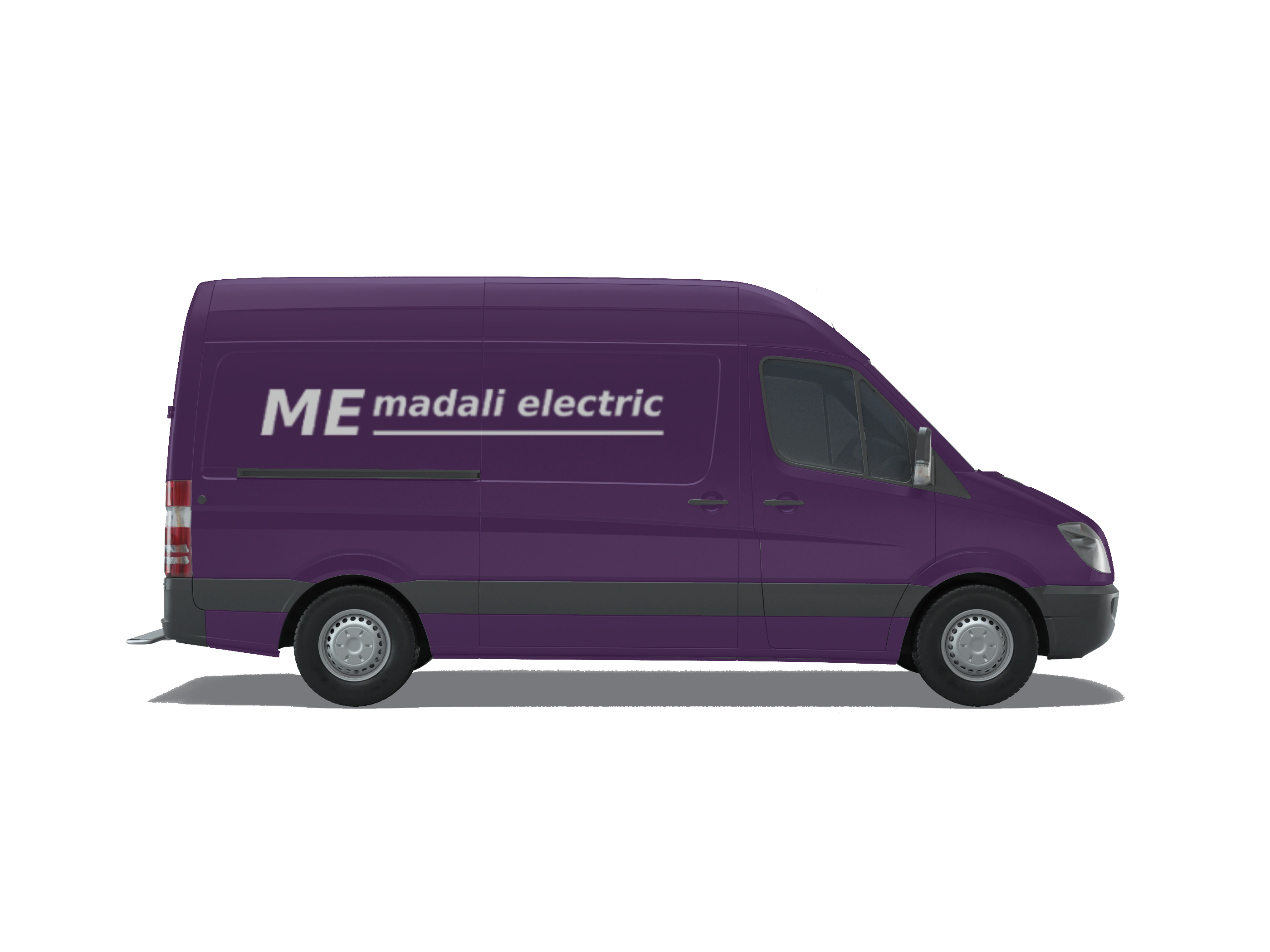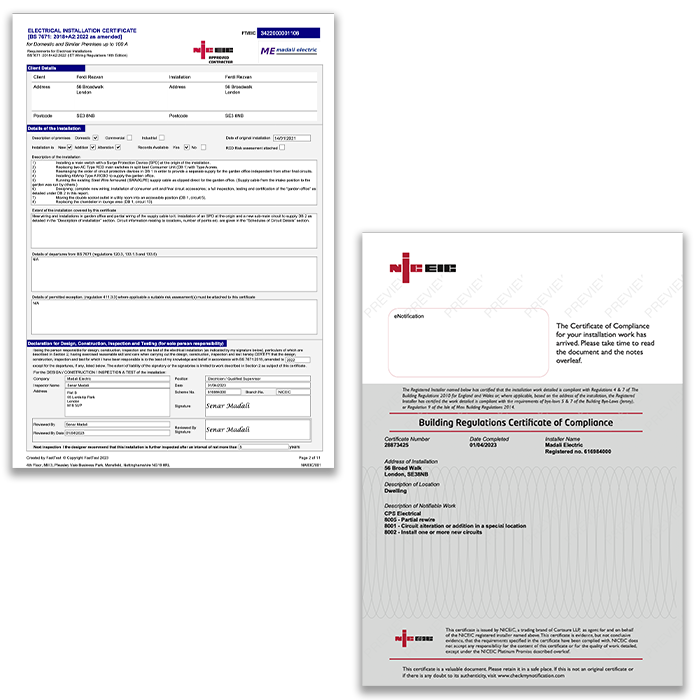Our Services
Residential and Commercial Electrical Solutions
Our Services
Residential and Commercial
Electrical Solutions
Emergency Call Outs (24/7)
General fault finding & repairs
When electrical issues arise, our expert technicians are skilled in swiftly identifying and rectifying faults. Whether it's a malfunctioning appliance, a damaged wire, or an unknown electrical issue causing disruptions, our team excels in thorough fault finding to quickly restore normalcy. Our goal is to ensure the safety and reliability of your electrical systems.
Blown fuses, tripped circuit breakers / MCBs
Blown fuses and tripped circuit breakers can disrupt your power supply and indicate potential issues within your electrical system. Our professionals specialize in diagnosing the cause of these disruptions, replacing blown fuses, and resetting circuit breakers. We address these issues promptly, preventing further damage and restoring your electrical connections to optimal functionality.
Tripped RCDs or RCBOs
Tripped Miniature Circuit Breakers (MCBs), Residual Current Devices (RCDs), and Residual Current Circuit Breakers with Overcurrent protection (RCBOs) are crucial safety features in your electrical setup. If these components trip, it could indicate a fault or a potential hazard. Our team is adept at identifying the root cause of these trippings and taking the necessary measures to rectify the issue. We prioritize the safety of your electrical installations and ensure compliance with industry standards.


Electrical Certificates
Fixed Wire Testing
Fixed wire testing, also known as periodic inspection and testing, is a crucial procedure to ensure the safety and functionality of electrical installations in buildings. It involves a comprehensive examination of the electrical wiring, circuits, and associated components to identify any potential faults, damage, or non-compliance with safety regulations.
During the fixed wire testing process, we conduct thorough inspections and carry out various tests to assess the condition of the electrical installation. This examination covers aspects such as the integrity of cables, the adequacy of earthing, the suitability of protective devices, and the overall compliance with relevant standards. We will then provide a detailed report outlining the findings and any necessary remedial actions. This helps identify potential risks and allows for necessary repairs or improvements to be made.
Landlord Certificates
A landlord certificate, also known as an Electrical Installation Condition Report (EICR), is a document that verifies the electrical safety of a rental property. It involves a thorough inspection and testing of the electrical installations to ensure they meet the necessary standards and regulations. A landlord certificate is crucial for both landlords and tenants. Landlords are legally obligated to provide a safe environment for their tenants, and a valid certificate helps demonstrate compliance with the necessary electrical safety standards. It also gives tenants peace of mind, knowing that the property has been assessed for potential electrical hazards.
During the inspection, we will examine various components such as wiring, socket outlets, switches, and fuse boxes etc. We will assess the condition of these installations and identify any potential risks or non-compliance with safety standards. Upon completion, we will issue a landlord certificate which states the findings of the inspection and indicates whether any remedial actions are required. Therefor it serves as evidence of compliance with safety regulations and provides assurance to tenants.
EIC (Electrical Installation Certificate)
The Electrical Installation Certificate (EIC) is an important document used in the electrical industry. It is issued to certify that an electrical installation complies with the relevant safety regulations and standards. The certificate provides details about the installation, including the installer's information, the intended use of the installation, and any limitations or conditions that may apply. It also confirms that all necessary inspections and tests have been completed and that the installation is safe to use. We inspect, test and commission our electrical installations. We notify local building authority of any notifiable works within one week of completion and provide our customers with "Building Regulations Certificate of Compliance" as well as "Electrical Installation Certificate"
MW (Minor Works Certificate)
A Minor Works Certificate (MW) is issued for small-scale electrical works or alterations that do not constitute a major installation. Our experienced electricians perform these minor works with precision and attention to detail, ensuring compliance with regulations and standards. The MW certificate documents the work carried out, confirming its safety and adherence to industry requirements, and provides peace of mind for property owners.
EICR (Electrical Installation Condition Reports)
An EICR is a thorough inspection and testing of electrical installations within a property to evaluate its safety and compliance with the latest regulations. It involves a detailed examination of electrical systems, including wiring, socket outlets, switches, and distribution boards. Additionally, it checks for potential risks such as faulty connections, insufficient earthing, or outdated equipment. The purpose of an EICR is to identify any defects, damage, or wear and tear that could pose a safety hazard or affect the performance of the electrical installation. By conducting regular ElCRs, property owners can ensure the safety of occupants, comply with legal requirements, and address any potential electrical issues promptly.
Emergency Lighting Test & Certificates
Emergency lighting is a crucial aspect of any building's safety system, ensuring that in the event of a power failure or emergency, occupants can safely evacuate. Regular testing of emergency lighting is essential to guarantee its continuous functionality. Typically, emergency lighting tests involve checking that all emergency light fittings are in working order, ensuring the batteries are functioning correctly, and assessing the overall illumination provided.
There are various types of emergency lighting tests, including the basic functionality test, which involves activating the lighting system manually to confirm it is operating correctly. Another common test is the duration test, where the emergency lights are evaluated to ensure they remain operational for the required duration during a power failure or emergency situation.
Fire Alarm Tests & Certificates
Fire Alarm Tests & Certificates involve comprehensive inspections and testing of fire alarm systems to ensure they are fully operational and compliant with safety regulations. Our certified technicians conduct thorough tests on all components of the fire alarm system, including detectors, alarms, control panels, and backup power sources. We issue certificates to confirm that the fire alarm system has been tested and is functioning correctly, enhancing fire safety measures for the property.
PAT (Portable Appliance Testing) & Certificates
Portable Appliance Testing (PAT) involves the inspection and testing of electrical appliances to ensure they are safe for use. Our qualified electricians perform comprehensive tests on portable appliances, including visual inspections and electrical tests, to identify any defects or potential hazards. We issue PAT certificates to confirm that the appliances have been tested and meet safety standards, providing assurance of electrical safety for users and compliance with regulations.
FAT (Fixed Appliance Testing) & Certificates
Fixed Appliance Testing (FAT) involves the inspection and testing of permanently installed electrical appliances to ensure they are safe for use. Our skilled electricians conduct thorough tests on fixed appliances, such as ovens, hobs, electric heaters, water heaters and air conditioning units, to identify any faults or potential hazards. We issue FAT certificates to confirm that the fixed appliances have been tested and meet safety standards, ensuring peace of mind for property owners and compliance with regulations.
Electrical Wiring & Installations
Partial & Full Re-wire
When your electrical wiring is compromised whether due to a fault, fire or damaged by a rodent. We can assist you and partially rewire your electrical circuits. When you want to upgrade your electrical wiring or simply to add another circuit to your Consumer Unit i.e. to supply a new circuit such as an electric shower or just want to add a new socket outlet to your existing ring final circuit, we are here to offer our expertise and diligent workmanship to the best industry standards.We listen to your requirements, inspect your electrical installation and wiring for feasibility, make best possible recommendations with options to suit your needs and then carry out all necessary electrical works according to BS7671 wiring regulations. We inspect, test and certify our work and notify building authority for all notifiable works to issue you a Building Regulations Certificate of Compliance certificate.
Design & Installation of Spot Lights
Whether you want a new, modern, contemporary look for your office; or to have decorative lights, replacement of your spotlights or design and install new spotlights in your house, we are ready to help. We complement your taste with state of the art installation practice that is pleasing to the eye and energy efficient for your budget and friendly to the planet.
Upgrade / Replacement of Consumer Units
Upgrade / replacement of Consumer Units:
Consumer unit, also known as a fuse box or distribution board, is responsible for controlling and distributing electricity throughout the building. It incorporates protective devices to protect the overall system from overload, short circuits, and electrical faults. Upgrading the consumer unit is crucial for ensuring electrical safety of a property and bringing it up to date with current standards. Often, Consumer Unit upgrade is the single most important thing that can be done to improve the safety of an electrical installation, short of a full rewire. During a consumer unit upgrade, we will assess the electrical wiring and equipment in the property to identify any potential risks or outdated components. We will install a new consumer unit that meets the latest safety regulations and is capable of handling the electrical demands of modern appliances and technologies. Upgrading the consumer unit offers increased electrical capacity, better protection against electrical faults, improved safety features, and the ability to incorporate additional circuits and protective devices. It also helps to minimize the risk of electric shocks, electrical fires, and other electrical hazards. In the UK, consumer units and protective devices must comply with British standards and regulations, including the BS 7671 Wiring Regulations. These regulations outline specific requirements and guidelines for their installation, operation, and safety to ensure the utmost protection for consumers. Our experience and expertise in this regard plays a vital role in achieving safety and quality.
Consumer units: Metal or plastic
Metal consumer units offer better protection against fire hazards and can provide enhanced electromagnetic shielding. They are generally more durable and resistant to physical damage. Additionally, metal consumer units often have more space for electrical components and can be more secure. The requirements for non-combustible consumer units were introduced in the 17th Edition of the IET Wiring Regulations (BS 7471:2008+A3:2015). Regulation 421.1.20 of BS 7671:2018 states, for consumer units and similar switchgear assemblies in domestic premises, to be manufactured from non-combustible materials or be enclosed in a cabinet constructed from non-combustible materials.
Consumer units and protective devices:
The importance of consumer units lies in their ability to prevent electrical fires and electrocution hazards. They are equipped with protective devices such as circuit breakers, residual current devices (RCDs), and fuses that serve as safeguards against potential dangers. Circuit breakers automatically trip and interrupt the flow of electricity when an overload or short circuit occurs. RCDs detect any leakage current and rapidly disconnect the power supply, preventing fatal electric shocks. Fuses, on the other hand, act as sacrificial components that melt or blow when excessive current passes through, thereby protecting the wiring and connected equipment and preventing further damage. Electrical systems and safety measures can vary depending on multiple factors, including national and local standards, building codes, and specific circumstances which may require use of following protective devices:
RCD (Residual Current Device): An RCD is a life-saving device that quickly detects any imbalance in electrical currents and trips the circuit to prevent electric shocks and fire risks. It provides extra protection by monitoring the flow of electricity and cutting off the power supply if an imbalance occurs. Amendment 2 of the 18th Edition Wiring Regulations (BS 7671) came into full effect on 28 September 2022 required Type A RCDs as opposed to Type AC RCDs previously. Type A RCDs are considered to provide a higher level of sensitivity in detecting earth leakage currents and offer a broad spectrum of protection. On the other hand, a Type AC RCD provides protection for alternating currents (AC) only. In conclusion, while Type A RCDs provide protection against both alternating and pulsating direct currents, Type AC RCDs offer protection against alternating currents only.
RCBO (Residual Current Breaker with Overcurrent): Combining the features of an RCD and an MCB (Miniature Circuit Breaker), an RCBO protects against both electric shocks and overcurrent situations. It provides the advantage of selective disconnection, allowing only the faulty circuit to trip while others remain functional.
SPD (Surge Protection Device): SPDs help protect electrical equipment from power surges and voltage spikes caused by lightning strikes, utility grid switching, or other electrical disturbances. They divert excess voltage to the ground, safeguarding sensitive devices such as computers, TVs, and other electronics from damage. Consumer units installed after 28 September 2022 are likely to incorporate SPDs (Surge Protective Device).
AFDD (Arc Fault Detection Device): Designed to detect dangerous electrical arcs caused by loose connections, damaged cables, or faulty devices, an AFDD offers an additional layer of safety. It can identify potential fire risks and automatically disconnect the power supply, reducing the likelihood of fires breaking out.

Emergency Call Outs (24/7)

General fault finding & repairs
When electrical issues arise, our expert technicians are skilled in swiftly identifying and rectifying faults. Whether it's a malfunctioning appliance, a damaged wire, or an unknown electrical issue causing disruptions, our team excels in thorough fault finding to quickly restore normalcy. Our goal is to ensure the safety and reliability of your electrical systems.
Blown fuses, tripped circuit breakers / MCBs
Blown fuses and tripped circuit breakers can disrupt your power supply and indicate potential issues within your electrical system. Our professionals specialize in diagnosing the cause of these disruptions, replacing blown fuses, and resetting circuit breakers. We address these issues promptly, preventing further damage and restoring your electrical connections to optimal functionality.
Tripped RCDs or RCBOs
Tripped Miniature Circuit Breakers (MCBs), Residual Current Devices (RCDs), and Residual Current Circuit Breakers with Overcurrent protection (RCBOs) are crucial safety features in your electrical setup. If these components trip, it could indicate a fault or a potential hazard. Our team is adept at identifying the root cause of these trippings and taking the necessary measures to rectify the issue. We prioritize the safety of your electrical installations and ensure compliance with industry standards.
Electrical Certificates

Fixed Wire Testing
Fixed wire testing, also known as periodic inspection and testing, is a crucial procedure to ensure the safety and functionality of electrical installations in buildings. It involves a comprehensive examination of the electrical wiring, circuits, and associated components to identify any potential faults, damage, or non-compliance with safety regulations.During the fixed wire testing process, we conduct thorough inspections and carry out various tests to assess the condition of the electrical installation. This examination covers aspects such as the integrity of cables, the adequacy of earthing, the suitability of protective devices, and the overall compliance with relevant standards. We will then provide a detailed report outlining the findings and any necessary remedial actions. This helps identify potential risks and allows for necessary repairs or improvements to be made.
Landlord Certificates
A landlord certificate, also known as an Electrical Installation Condition Report (EICR), is a document that verifies the electrical safety of a rental property. It involves a thorough inspection and testing of the electrical installations to ensure they meet the necessary standards and regulations. A landlord certificate is crucial for both landlords and tenants. Landlords are legally obligated to provide a safe environment for their tenants, and a valid certificate helps demonstrate compliance with the necessary electrical safety standards. It also gives tenants peace of mind, knowing that the property has been assessed for potential electrical hazards.During the inspection, we will examine various components such as wiring, socket outlets, switches, and fuse boxes etc. We will assess the condition of these installations and identify any potential risks or non-compliance with safety standards. Upon completion, we will issue a landlord certificate which states the findings of the inspection and indicates whether any remedial actions are required. Therefor it serves as evidence of compliance with safety regulations and provides assurance to tenants.
EIC (Electrical Installation Certificate)
The Electrical Installation Certificate (EIC) is an important document used in the electrical industry. It is issued to certify that an electrical installation complies with the relevant safety regulations and standards. The certificate provides details about the installation, including the installer's information, the intended use of the installation, and any limitations or conditions that may apply. It also confirms that all necessary inspections and tests have been completed and that the installation is safe to use. We inspect, test and commission our electrical installations. We notify local building authority of any notifiable works within one week of completion and provide our customers with "Building Regulations Certificate of Compliance" as well as "Electrical Installation Certificate"
MW (Minor Works Certificate)
A Minor Works Certificate (MW) is issued for small-scale electrical works or alterations that do not constitute a major installation. Our experienced electricians perform these minor works with precision and attention to detail, ensuring compliance with regulations and standards. The MW certificate documents the work carried out, confirming its safety and adherence to industry requirements, and provides peace of mind for property owners.
EICR (Electrical Installation Condition Reports)
An EICR is a thorough inspection and testing of electrical installations within a property to evaluate its safety and compliance with the latest regulations. It involves a detailed examination of electrical systems, including wiring, socket outlets, switches, and distribution boards. Additionally, it checks for potential risks such as faulty connections, insufficient earthing, or outdated equipment. The purpose of an EICR is to identify any defects, damage, or wear and tear that could pose a safety hazard or affect the performance of the electrical installation. By conducting regular ElCRs, property owners can ensure the safety of occupants, comply with legal requirements, and address any potential electrical issues promptly.
Emergency Lighting Test & Certificates
Emergency lighting is a crucial aspect of any building's safety system, ensuring that in the event of a power failure or emergency, occupants can safely evacuate. Regular testing of emergency lighting is essential to guarantee its continuous functionality. Typically, emergency lighting tests involve checking that all emergency light fittings are in working order, ensuring the batteries are functioning correctly, and assessing the overall illumination provided. There are various types of emergency lighting tests, including the basic functionality test, which involves activating the lighting system manually to confirm it is operating correctly. Another common test is the duration test, where the emergency lights are evaluated to ensure they remain operational for the required duration during a power failure or emergency situation.
Fire Alarm Tests & Certificates:
Fire Alarm Tests & Certificates involve comprehensive inspections and testing of fire alarm systems to ensure they are fully operational and compliant with safety regulations. Our certified technicians conduct thorough tests on all components of the fire alarm system, including detectors, alarms, control panels, and backup power sources. We issue certificates to confirm that the fire alarm system has been tested and is functioning correctly, enhancing fire safety measures for the property.
PAT (Portable Appliance Testing) & Certificates:
Portable Appliance Testing (PAT) involves the inspection and testing of electrical appliances to ensure they are safe for use. Our qualified electricians perform comprehensive tests on portable appliances, including visual inspections and electrical tests, to identify any defects or potential hazards. We issue PAT certificates to confirm that the appliances have been tested and meet safety standards, providing assurance of electrical safety for users and compliance with regulations.
FAT (Fixed Appliance Testing) & Certificates:
Fixed Appliance Testing (FAT) involves the inspection and testing of permanently installed electrical appliances to ensure they are safe for use. Our skilled electricians conduct thorough tests on fixed appliances, such as ovens, hobs, electric heaters, water heaters and air conditioning units, to identify any faults or potential hazards. We issue FAT certificates to confirm that the fixed appliances have been tested and meet safety standards, ensuring peace of mind for property owners and compliance with regulations.
Electrical Wiring & Installations

Partial & Full Re-wire
When your electrical wiring is compromised whether due to a fault, fire or damaged by a rodent. We can assist you and partially rewire your electrical circuits. When you want to upgrade your electrical wiring or simply to add another circuit to your Consumer Unit i.e. to supply a new circuit such as an electric shower or just want to add a new socket outlet to your existing ring final circuit, we are here to offer our expertise and diligent workmanship to the best industry standards.We listen to your requirements, inspect your electrical installation and wiring for feasibility, make best possible recommendations with options to suit your needs and then carry out all necessary electrical works according to BS7671 wiring regulations. We inspect, test and certify our work and notify building authority for all notifiable works to issue you a Building Regulations Certificate of Compliance certificate.
Design & Installation of Spot Lights
Whether you want a new, modern, contemporary look for your office; or to have decorative lights, replacement of your spotlights or design and install new spotlights in your house, we are ready to help. We complement your taste with state of the art installation practice that is pleasing to the eye and energy efficient for your budget and friendly to the planet.
Upgrade / Replacement of Consumer Units
Upgrade / replacement of Consumer Units:
Consumer unit, also known as a fuse box or distribution board, is responsible for controlling and distributing electricity throughout the building. It incorporates protective devices to protect the overall system from overload, short circuits, and electrical faults. Upgrading the consumer unit is crucial for ensuring electrical safety of a property and bringing it up to date with current standards. Often, Consumer Unit upgrade is the single most important thing that can be done to improve the safety of an electrical installation, short of a full rewire. During a consumer unit upgrade, we will assess the electrical wiring and equipment in the property to identify any potential risks or outdated components. We will install a new consumer unit that meets the latest safety regulations and is capable of handling the electrical demands of modern appliances and technologies. Upgrading the consumer unit offers increased electrical capacity, better protection against electrical faults, improved safety features, and the ability to incorporate additional circuits and protective devices. It also helps to minimize the risk of electric shocks, electrical fires, and other electrical hazards. In the UK, consumer units and protective devices must comply with British standards and regulations, including the BS 7671 Wiring Regulations. These regulations outline specific requirements and guidelines for their installation, operation, and safety to ensure the utmost protection for consumers. Our experience and expertise in this regard plays a vital role in achieving safety and quality.
Consumer units: Metal or plastic
Metal consumer units offer better protection against fire hazards and can provide enhanced electromagnetic shielding. They are generally more durable and resistant to physical damage. Additionally, metal consumer units often have more space for electrical components and can be more secure. The requirements for non-combustible consumer units were introduced in the 17th Edition of the IET Wiring Regulations (BS 7471:2008+A3:2015). Regulation 421.1.20 of BS 7671:2018 states, for consumer units and similar switchgear assemblies in domestic premises, to be manufactured from non-combustible materials or be enclosed in a cabinet constructed from non-combustible materials.
Consumer units and protective devices:
The importance of consumer units lies in their ability to prevent electrical fires and electrocution hazards. They are equipped with protective devices such as circuit breakers, residual current devices (RCDs), and fuses that serve as safeguards against potential dangers. Circuit breakers automatically trip and interrupt the flow of electricity when an overload or short circuit occurs. RCDs detect any leakage current and rapidly disconnect the power supply, preventing fatal electric shocks. Fuses, on the other hand, act as sacrificial components that melt or blow when excessive current passes through, thereby protecting the wiring and connected equipment and preventing further damage. Electrical systems and safety measures can vary depending on multiple factors, including national and local standards, building codes, and specific circumstances which may require use of following protective devices:
RCD (Residual Current Device):
An RCD is a life-saving device that quickly detects any imbalance in electrical currents and trips the circuit to prevent electric shocks and fire risks. It provides extra protection by monitoring the flow of electricity and cutting off the power supply if an imbalance occurs. Amendment 2 of the 18th Edition Wiring Regulations (BS 7671) came into full effect on 28 September 2022 required Type A RCDs as opposed to Type AC RCDs previously. Type A RCDs are considered to provide a higher level of sensitivity in detecting earth leakage currents and offer a broad spectrum of protection. On the other hand, a Type AC RCD provides protection for alternating currents (AC) only. In conclusion, while Type A RCDs provide protection against both alternating and pulsating direct currents, Type AC RCDs offer protection against alternating currents only.
RCBO (Residual Current Breaker with Overcurrent):
Combining the features of an RCD and an MCB (Miniature Circuit Breaker), an RCBO protects against both electric shocks and overcurrent situations. It provides the advantage of selective disconnection, allowing only the faulty circuit to trip while others remain functional.SPD (Surge Protection Device): SPDs help protect electrical equipment from power surges and voltage spikes caused by lightning strikes, utility grid switching, or other electrical disturbances. They divert excess voltage to the ground, safeguarding sensitive devices such as computers, TVs, and other electronics from damage. Consumer units installed after 28 September 2022 are likely to incorporate SPDs (Surge Protective Device).
AFDD (Arc Fault Detection Device): Designed to detect dangerous electrical arcs caused by loose connections, damaged cables, or faulty devices, an AFDD offers an additional layer of safety. It can identify potential fire risks and automatically disconnect the power supply, reducing the likelihood of fires breaking out.
Get In Touch
Get In Touch


Contact Us
madali.electric@gmail.com
+447904041008
Hackney, London.
Public liability up to 2M & professional indemnity insurance up to 500k

Contact Us
madali.electric@gmail.com
+447904041008
Hackney, London.
